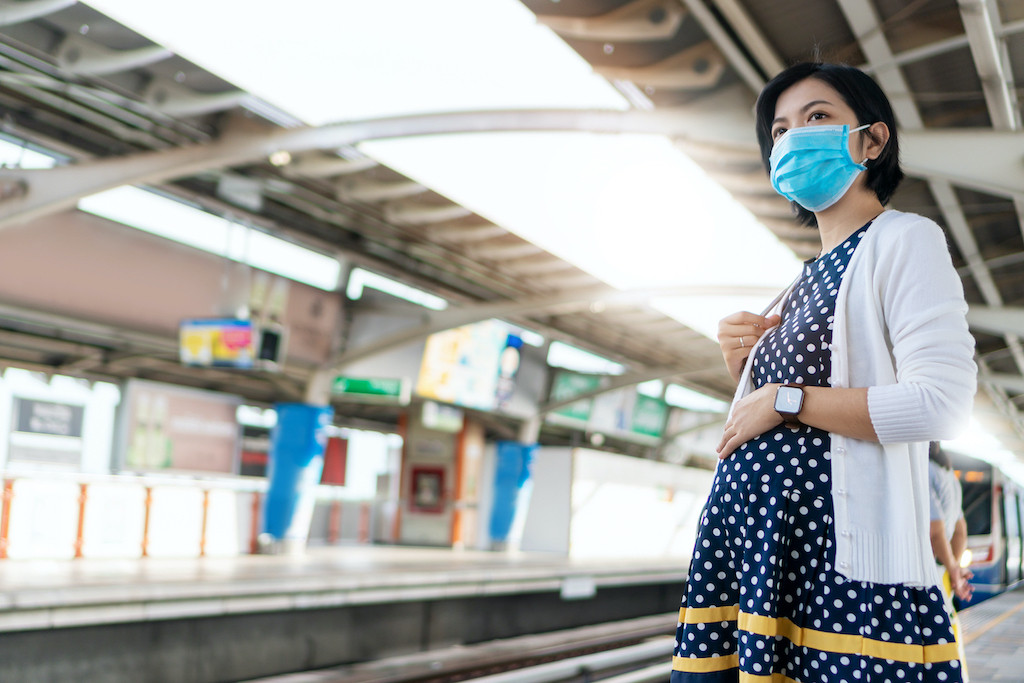Popular Reads
Top Results
Can't find what you're looking for?
View all search resultsPopular Reads
Top Results
Can't find what you're looking for?
View all search resultsGiving birth in time of COVID-19
While the women who have become pregnant during the pandemic still have hope that they can give birth when the danger of COVID-19 subsides, what about the women who became pregnant before the pandemic hit and have needed to give birth when COVID-19 has been at its peak?
Change text size
Gift Premium Articles
to Anyone
A
n increase in unplanned pregnancies is considered one the side effects of the stay-at-home orders issued during the COVID-19 pandemic. This is not just because people are incredibly bored and have nothing better to do than make babies, but also because access to birth control has become difficult.
The National Population and Family Planning Board (BKKBN) reported that there were more than 400,000 unplanned pregnancy in May as large scale social restrictions (PSBB) limited access to healthcare facilities that provide birth control.
While the women who have become pregnant during the pandemic still have hope that they can give birth when the danger of COVID-19 subsides, what about the women who became pregnant before the pandemic hit and have needed to give birth when COVID-19 has been at its peak?
Salma, a homemaker living in Rumbai, Riau Islands, delivered a baby girl in mid-May. She had a lot to worry about before the delivery, as she has an infant that still needs full-time care, and her mother, who lives in West Java, could not accompany her or her two older children as travel had been banned.
“I wasn’t sure who could take care of my children when I gave birth to my new baby and stayed in the hospital to recover, as there was a possibility that children wouldn’t be allowed to stay in the hospital room,” Salma told The Jakarta Post, adding that her part-time maid was not allowed to enter the housing complex she lived in to take care of her older children because of social restrictions.
Fortunately, Salma’s older children were eventually allowed to stay in her spacious room in the hospital.
“The hospital said it was not recommended to bring children along, but they let my children into the hospital, although my youngest had to be put in a stroller with a plastic shield whenever she was outside my room,” said Salma.
Adityantari Lukisanita Dewi, a researcher with the Social and Economic Research Institution of University of Indonesia’s Economic and Business School (LPEM FEB UI), shared a similar experience. Even more extraordinary, Adit gave birth on Idul Fitri.
“There were only two other women giving birth in the hospital that day,” Adit told the Post, adding that prior to being admitted to the delivery room, she had to take a COVID-19 rapid test and undergo a thorax CT-scan.
“I was allowed to enter the delivery room only after being declared COVID-19 free. The whole procedure was stressful,” recalled Adit, adding that the test cost her Rp 2.7 million (US$185.94) in addition to the regular hospital fees.
To add to Adit’s drama, she was also experiencing her first normal birth at the age of 35, after having a Caesarian section to deliver her first child eight years prior.
Intan Renata Silitonga, an obstetrician-gynecologist with a sub-specialization in reproductive health at Rajawali Hospital and Intan Obstetrics and Gynecology Clinic in Bandung, West Java, confirmed that some healthcare facilities required women who would give birth to undergo COVID-19 rapid tests. If the expectant mother tests positive and the facility is unable to treat COVID-19 patients, the woman would be referred to another hospital that was capable.
“If the woman’s rapid test result is non-reactive, she will have to wear a face mask as soon as she arrives. She can only be accompanied by one healthy person who must also wear a mask, and she is not allowed to receive any guests,” Intan told the Post.
As for the healthcare workers, they are required to wear the appropriate personal protective equipment (PPE). A delivery chamber covered with plastic shields is also provided, to minimize exposure to respiratory droplets.
Intan advised people to postpone their plans for pregnancy during the COVID-19 pandemic, as families faced many challenges, including financial difficulties that could jeopardize a child’s education and limited access to health care that could impact the pregnancy.
“If pregnant women lack access to nutrition because of financial limitations, this could lead to anemia and a weaker immune system that will make them prone to diseases or could prolong the recovery [if they undergo an] operation,” said Intan, also highlighting that miscarriages, stunting, premature birth or placenta complications such as placenta previa or solutio placenta were consequences of nutritional deficiencies.
However, it is understood that becoming pregnant is everyone’s right, and Intan said she would still support women who planned to become pregnant.
“Some of my patients with infertility problems still want to carry on with their pregnancy programs despite the pandemic. Maybe they have no idea when it will be over, life goes on, and they have been longing for a baby for a long time. So, they have to keep going,” said Intan.










